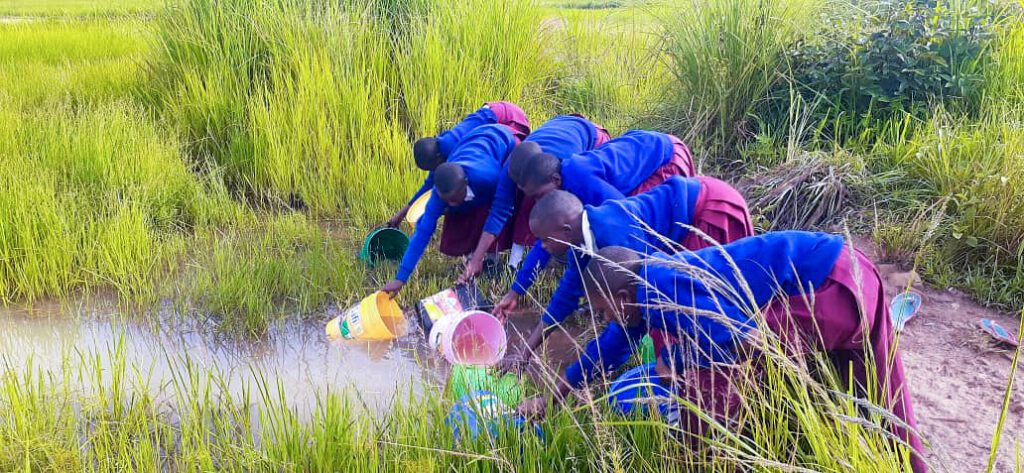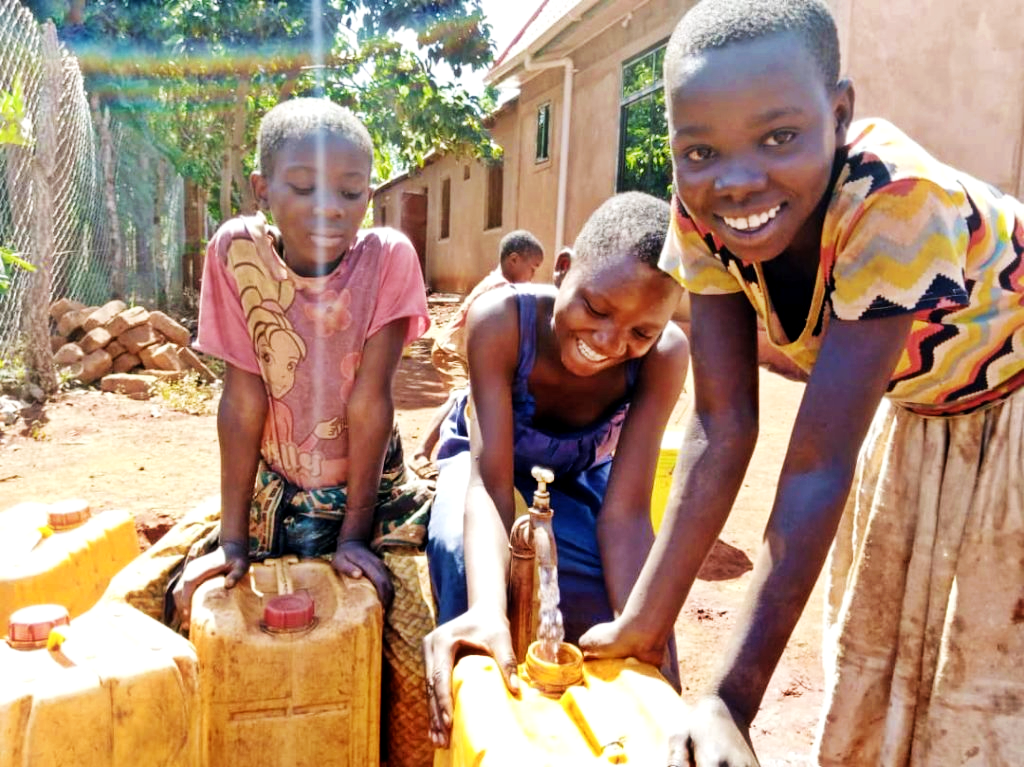Water is the key to life. Yet when we started our work, Mboni ya Vijana found Zeze and Kasulu facing droughts and a lack of access to clean and safe water. As climate change impacts our earth, water becomes ever more scarce for us as our ponds and streams dry up, our land degrades, droughts become more frequent and our communities are faced with greater challenges in getting any water.

Water availability is becoming less predictable for us. We will suffer extended periods of droughts with short but heavy rainfalls leading to flooding. As people set off on their long walks to the streams to collect water, they can often find that is has dried up, leading to people having to spend even more hours looking for more sources of water.
The theme of this year’s world water day is groundwater. Ours is disappearing as the climate crisis wreaks havoc on our earth, and desertification of our home happens before our eyes.
The climate crisis and access to water are inseparable. We are working to tackle both crises that our communities face.
One of the most direct impacts of climate change will be on child survival through three channels, according to UNICEF – changing disease environments, greater food insecurity, and threats to water and sanitation. Our communities – our children – are already facing these challenges.
Whether it is through transmission of water-borne diseases from dirty water, or diarrhoeal diseases from unclean water and inadequate sanitation, our children’s lives are put at risk simply by drinking unsafe and unclean water.
Our communities are also suffering from greater food insecurity – greater hunger and malnutrition. With our land degrading, more droughts, and greater water scarcity, we struggle to grow crops. When the rain does come, it will fall in short but heavy bursts, leaving our fields flooding and destroying what crops we are able to grow. This leaves us with little to eat. With malnutrition and continuous diarrhoeal diseases, our children can suffer stunting, impaired physical and mental development, and even risk death.
However, our land degradation and food insecurity also means that we are plunged further into extreme poverty – whilst we have no food to eat, we also do not have it to sell. Many people of our communities are subsistence farmers – it is not just the food we eat, it is also our livelihoods.


A lack of access to water impacts more areas of our livelihoods – especially for girls and women. Collecting water for the household is a duty that will usually fall upon the girls and women of our communities. Without our help, this means that that duty can consist of a 5 mile walk to the stream, hours waiting in a queue to collect water before walking back home again. For girls, this means less time studying in school. For women, this means less time earning an income alongside their male counterparts. A lack of access to water widens the gender inequalities our communities face.
Our founder Benedicto was passionate about getting water to communities. “After going away for education, I had an idea that I should make Zeze better like other places,” said Benedicto. “I tried to find out how we can find water solutions in Zeze. This was a passion to make the lives here in Zeze improve, and every people feel we’re in a better place to live. And this was possible if we had clean and safe water.”
Since 2016 we have funded more than 50 water pumps, reaching more than 100,000 people! With the water pumps we have installed, we have reduced walking time by 90% and have reduced water borne diseases – especially diarrhoea. School attendance has improved – especially for girls, who spend more hours in school and have seen their grades soar.
This has been a huge undertaking for us. We have perfected a technique that allows us to make our reliable water pumps, ensure that they will provide water all-year around for our communities – all at a lower cost. It can take many days for us to hand-drill a deep borehole, depending on the geological conditions. But there is never any doubt as to whether it is worth it knowing how many lives we will change!
We are always incredibly grateful for everyone’s support – whether it is supporting and sharing our work online and on social media, or donating to our projects (from the cost of a water pump to the cost of what you would spend on a cup of coffee!). We have implemented two water pumps with the generous help of Kwanda and their village – Tithe secondary school and Lalambe village – reaching approximately 2500 people!
We also work closely with our partner Tanzania Development Trust to identify areas that need water pumps and to get funding for them. If you would like to help us, you can donate via the button to the left, or go to their shop and purchase a good gift where you will also get an e-card! As the Tanzania Development Trust is a volunteer-run non-profit, every pound donated to them will go directly to the projects they fund!
You can also help us tackle the problems we face by helping us take climate action. You can donate via our link, or you can go to Tanzania Development Trust’s shop and purchase a trees good gift.
No one should be without water, should have to fear drinking their water because it is unsafe. No one should have to watch their land degrade around them, with something so fundamental to our existence as water becoming scarcer.
But we can change this. We will change this.




